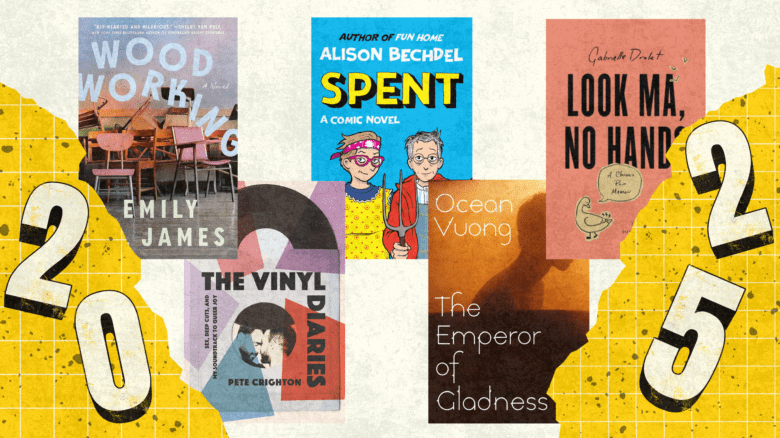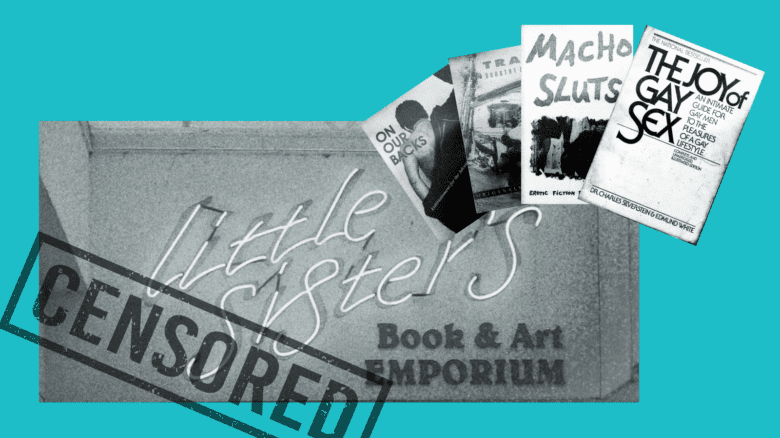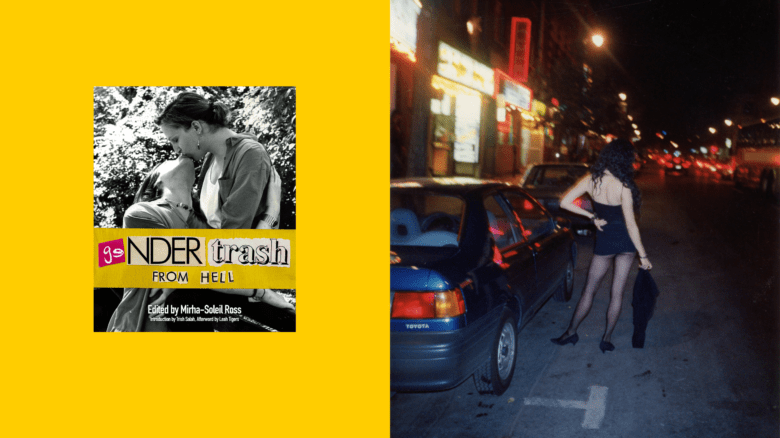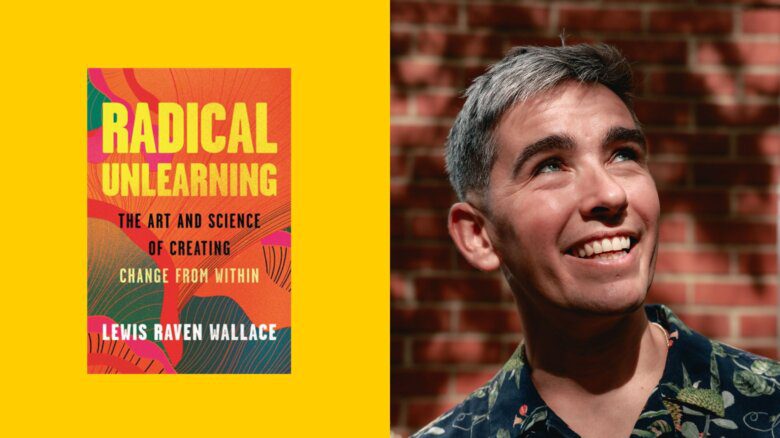For Chris Belcher, a memoir isn’t just a recounting of past experiences, it’s a valuable opportunity to explain the past through the wisdom of the present. Belcher’s new book, Pretty Baby, spans a queer coming-of-age in working-class small-town Appalachia before she moves to Los Angeles and works as a professional dominatrix. The decades-spanning jumps between dramatically different life circumstances, though disparate at first glance, are bound together expertly by a sharp-eyed exploration of gender dynamics, labour politics and capitalism that weaves itself through everything.
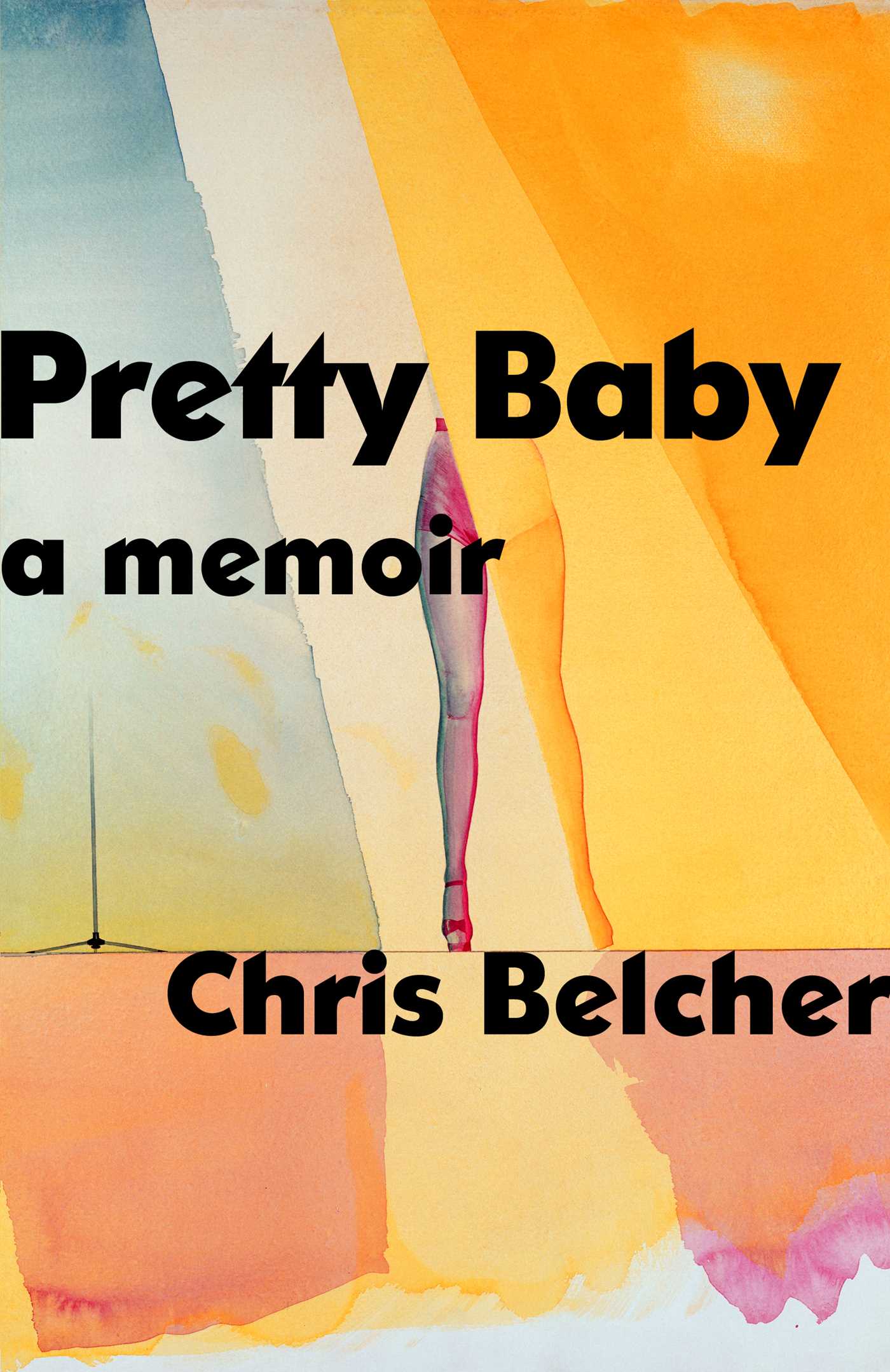
Credit: Courtesy of Simon & Schuster
Pretty Baby follows the protagonist-author’s experiences Bildungsroman-style as Belcher begins to recognize the tension between her own desires and the homophobic patriarchical system we all live under. In the first part of the book, the tensions and attitudes that push queer youth into shame and self-repression are highlighted clearly as Belcher writes about the latent hostility meted out to her town’s few openly queer residents, her social ostracization and the swift attempts of school officials and parents to snuff out anything even hinting at queerness. Permeating all these events are deeply nostalgic late-1990s cultural references: the protagonist watches The Real World, listens to Britney’s debut hits and revels in excitement at her first experiences with the internet.
The second section sees the protagonist move out of her small town and attend university, eventually ending up in Los Angeles and finding work in a dungeon as a professional dominatrix. Belcher discusses all the myriad ways that societal pressures through childhood, adolescence and adulthood that push her into a position of deferential, demure, stereotypical femininity, including being entered in (and winning) an infant beauty contest. As an adult, she learned she could find a way out of financial precarity by aligning herself with all the pressures that had always acted on her. As she explains it, “once I started accepting money from men who were paying me to not only meet but exceed hetero-patriarchical expectations, I realized that money was more powerful than any ‘fuck you’ my armpit hair might exude. The hetero-patriarchy was not listening to my armpit hair, and men had money to burn.”
Belcher sat down virtually with Xtra from Poland, where she was travelling at the time. We talked about her memoir, the theoretical underpinnings of the book, gender dynamics, small-town stereotypes and sex work.
What do you think is powerful or meaningful about the memoir as a format?
The work that’s always affected me is work that has a political or cultural objective, but that has personal narratives at its heart. I come out of a tradition of writing that is more academic, working as a professor of Gender and Sexuality Studies. In that field of study, we often talk about the ways that centring the writer or thinker in their own communities can do kinds of feminist or queer political work. The memoir form is lovely because you get to take your own experience and be both the storyteller and the analyst of it. But in other ways, the memoir form is limited because it’s unjust that there are so few stories that get to be told. I do have to grapple with that in a lot of ways.
Why did you want to start writing about your life? What was happening when you made that decision?
One thing for me was the #MeToo movement. Back in early 2018, I wrote a sex-worker response to #MeToo under my performer name, Natalie West. It spoke to the different ways I’d started seeing my experiences in sex work reflected by everything else that was going on in the culture. After that, I didn’t actually start writing the memoir immediately. Instead, I edited a book called We Too: Essays on Sex Work and Survival for the Feminist Press, which came out in February 2020. Through the process of editing so many different sex-working writers, I started to see my own story differently, to see the ways that my story was different from other people’s. I started to feel like I had something longer to offer. I also circumstantially and materially was at a place where I was adjuncting and making very little money; I had soured a bit on the academic job and my prospects within that realm. And that was actually quite freeing, because all of a sudden I felt like I could write about sex work and didn’t have to stay in the closet. Staying closeted and silent was not actually getting me where I want to go, so I thought I might as well write what I wanted to write.
What is your academic work like now?
I’ve since gotten out of the situation of adjunct teaching, and now have a permanent position, though it’s not a tenure-track position, it’s a teaching position. I primarily teach creative nonfiction, as well as the essay form itself, personal narrative essays and cultural criticism. I also teach in Gender and Sexuality Studies as a lecturer, at the same university, the University of Southern California.
When writing Pretty Baby, how did you cope with the vulnerability of writing about your life publicly?
When I started writing about my own experience, I couldn’t think about it like that. I didn’t even imagine a reader, other than the agents I was sending proposals to. It felt so far away from being a book that I was able to work on it in a way that was probably a bit more liberated. Once I got the book contract and started writing the book, then it became more difficult. By the time the book was a copy-edited manuscript, I had considered every story that ended up on the page, who was going to read it and who was living alongside me in these different memories that became stories. At this point [when we’re talking in June], just before the book comes out, people I work with at the university haven’t yet read the book. I can’t tell you what that’s going to look like, but it does feel both exciting and also incredibly vulnerable.
Pretty Baby is kind of a mash-up of different stories. There’s a dominatrix narrative, but there’s also a lot about growing up queer in a small town. Why was it important to you to intertwine these stories?
When I originally conceived of the book, I wasn’t yet committed to the memoir form. I thought it would be a collection of essays about sex work and everything that I was learning about gender and power and sex in that realm, and that positioned those ideas against my own queer coming of age. I wanted to write about these things topically, but also in a way that was reflective. In the realms of both sex work and queerness, we’re often searching for origins, and those searches are usually stymied in a million different ways. Questions like “Why am I like this, why am I able to do this work, where did I become this person who is able to do this kind of work or have this kind of sex?” These kind of questions can be turned sinister: the stereotype of the sex worker with daddy issues, or with people thinking that if they can find the origin of queerness, they can “fix it.” But I also think that these questions are significant within queer writing and intellectual history. It’s sort of a journey backward to how we came to love, or fuck or whatever it is that we do.
What can childhood tell you about the ideas that you’re writing about in Pretty Baby?
When I started writing about the power dynamics and ways that I interacted with men as a professional dominant, I didn’t think they were all that different from some of the ways I interacted with boys and men when I was younger. A lot of early power dynamics get played out later in life—they’re replicated. Of course that would be the case, because I was living under the same patriarchy as a 12-year-old as that I was as a 26-year-old dominant. Having childhood as part of this narrative allows us to grapple with the power dynamics that play out across life, and not just not just in one arena. The narrative doesn’t just start with doing professional BDSM work. That’s what I wanted this book about professional domination and sex work to do, to show how the power dynamics that are present in that space are actually spread out across our culture.
What was it like to write about growing up queer given the current political situation, where attacks on queer youth in the U.S. are increasing?
I wanted to be careful about the ways that I represented the people who I grew up with and the place where I grew up, because of broader narratives that our culture has around those spaces being inherently unsafe. Those stereotypes can make people who live in urban or suburban areas “other” rural America and say that the problem is there, and that other spaces are fine. The reality is that queer youth are being attacked across the country; not in one particular place. Nonetheless, the fact is that I did grow up in a place that was virulently homophobic and racist. I can’t do a redemption narrative for that place. I want queer kids and trans kids who are living there now to be in a different environment, and unfortunately there’s a lot of work yet to be done. I don’t try to present a pastoral narrative overall, because that’s not the one I lived.
At certain points in the book while describing your childhood, you hint at the opioid epidemic that was coming. How much were you thinking about that as you were writing those parts, and why was it important for you to keep that in the background of the narrative?
When you’re writing about your experiences, you get to have these moments of reflection. When I was a kid, there was a lot of opioid use going on around me, but I didn’t yet have the critical distance from it to recognize what was going on. I don’t think you can write about rural West Virginia or Appalachia without thinking about the opioid epidemic. Now as an adult, I can look back and see how close it was to me, and to so many of my friends who have been affected in different ways by opioids. I think that mirrors what I was trying to achieve with the book in some ways. To show that the protagonist is in danger in different ways that she doesn’t know or understand at the time, but presenting it to readers through the critical distance of a narrator looking back.
Throughout the book, you write about growing up with the internet in its early stages. It’s almost a bit utopian compared to the experience of the internet for young people today, in that it isn’t yet all-encompassing and manipulatively habit-forming. How do you think things would have been different if you grew up with today’s internet?
I don’t know that I would’ve been as compelled to take what was happening on the internet and make it my material reality. I very quickly met somebody on the internet, another young queer girl, and went to meet her in real life. I’m not sure that I would make those same kinds of leaps if I had the internet of today. One, because the internet of today is overwhelming and terrifying. I also teach younger people who talk about contemporary queer spaces on the internet, and they don’t need these spaces to move over into material reality. They’re doing all kinds of identity and community formation work that can just take place online. Whereas for me, my concept of the internet back then was that it let me make connections to other people, whom I could then go meet in reality. If I was on today’s internet, I don’t know that I would have gone and had that first experience of queer sex with somebody who lived three hours away.
Later in the book, you write about a relationship between sex work and the internet that’s since changed so rapidly. What was it like for you to write about these things among such swift cultural changes?
In the prologue to the book, I talk about how easy it used to be, to just throw up a Backpage ad and attract clients that I could screen myself. [Backpage, a classified ad website used by many sex workers, was seized and shut down in 2018 by the U.S. Department of Justice.] That ease is absolutely not the case in the U.S. now, in a post-FOSTA-SESTA world. [FOSTA and SESTA were bills passed in the U.S. in 2018, ostensibly to fight sex-trafficking on the internet, that stripped away access and safety for sex workers.] For me it’s almost nostalgic to think about a time when I felt all I needed to make money was just an internet connection, and a space to see a client.
Pretty Baby doesn’t come to a place where it’s able make these critiques against today’s internet for sex workers. Things are changing so quickly, and sex workers are trying to respond to things like shadow banning, payment-processing criminalization and all the ways that sex work has been squeezed out of online spaces. That censorship has been detrimental to the work that we do. I personally find it hard; there were times when I wanted to go back to sex work, but I’ve found it much more difficult to do sex work in the new online environment. So the writing of the book becomes almost nostalgic, in the way it describes how you used to be able to use those platforms. It was an absence that I experienced as I was working on the book.
The book sees you through a few different iterations of your life. What is your life like today, at the time of publication?
I’m teaching and writing, and I’m happy doing that as it’s the work I always intended to do. I’m also very active in the BDSM leather scene and the queer scene in Los Angeles. I’m a party promoter, so I’m really invested in queer community spaces. You can see in the book how crucial those spaces were to my own sense of self and community. A lot of the things in the book itself still influence how I’m living my life today.
What sort of parties are you promoting?
I throw a party now with a couple of other people called Dana’s Night in Los Angeles. If you are familiar with The L Word: Generation Q, the character Shane on the show owns a bar called Dana’s. The scenes at Dana’s are filmed at a bar called The Semi-Tropic in Los Angeles’ Echo Park neighbourhood. We throw a party at the place where the show was filmed, so it draws on that meta element, being in the spaces that are being represented, which is a pretty cool concept for a party. It’s definitely some kind of simulacrum situation.
What’s next for you in terms of writing? Do you have any projects you’re working on or thinking about?
I’m interested in cross-genre forms, especially auto-fiction and history. I have a dream of writing something about lesbian and queer bar spaces, that would span memoir, history and auto-fiction. That’s what I’m hoping to start working on when the promotion of this book wraps up.
This interview has been edited for length and clarity.
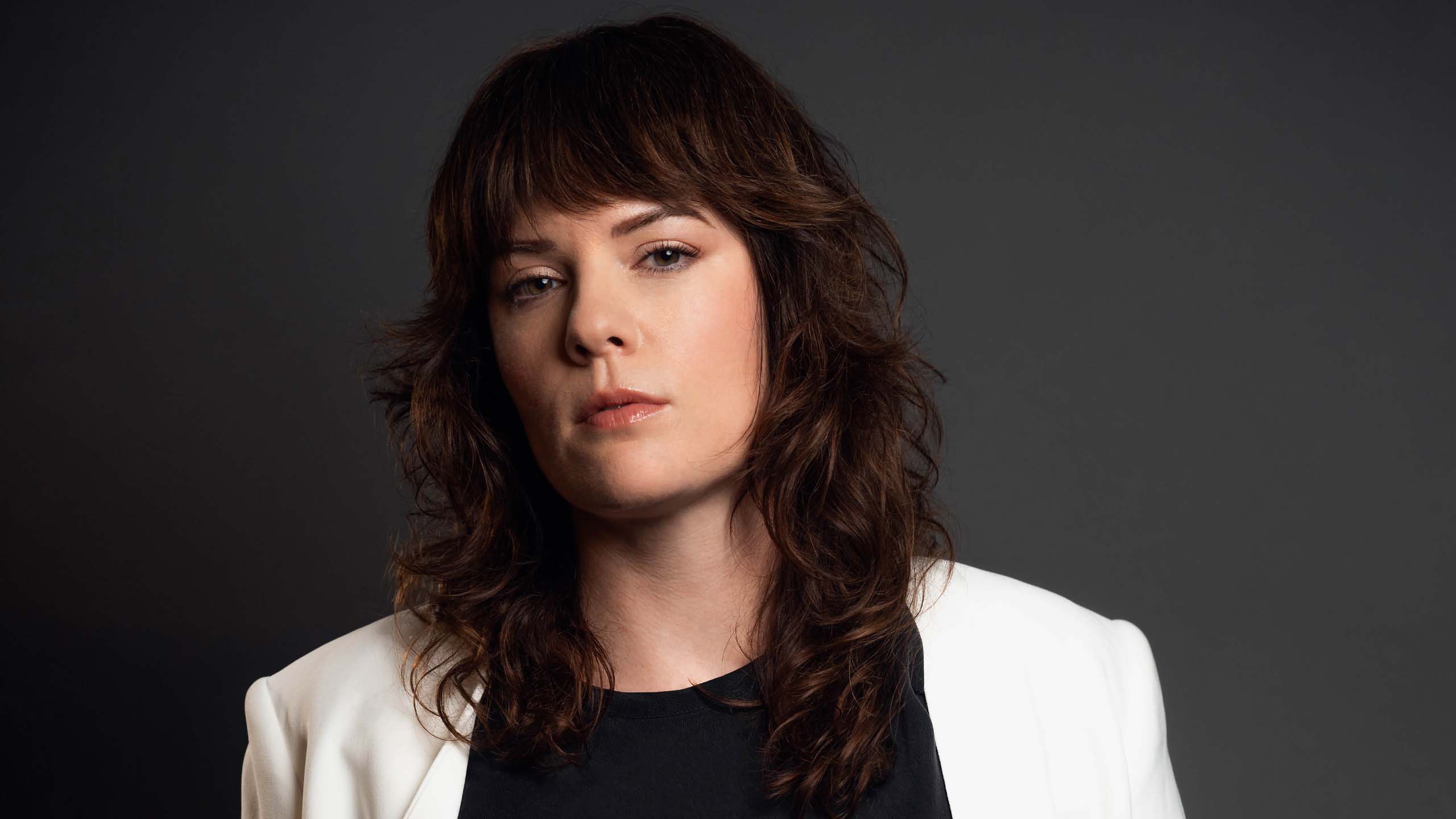

 Why you can trust Xtra
Why you can trust Xtra